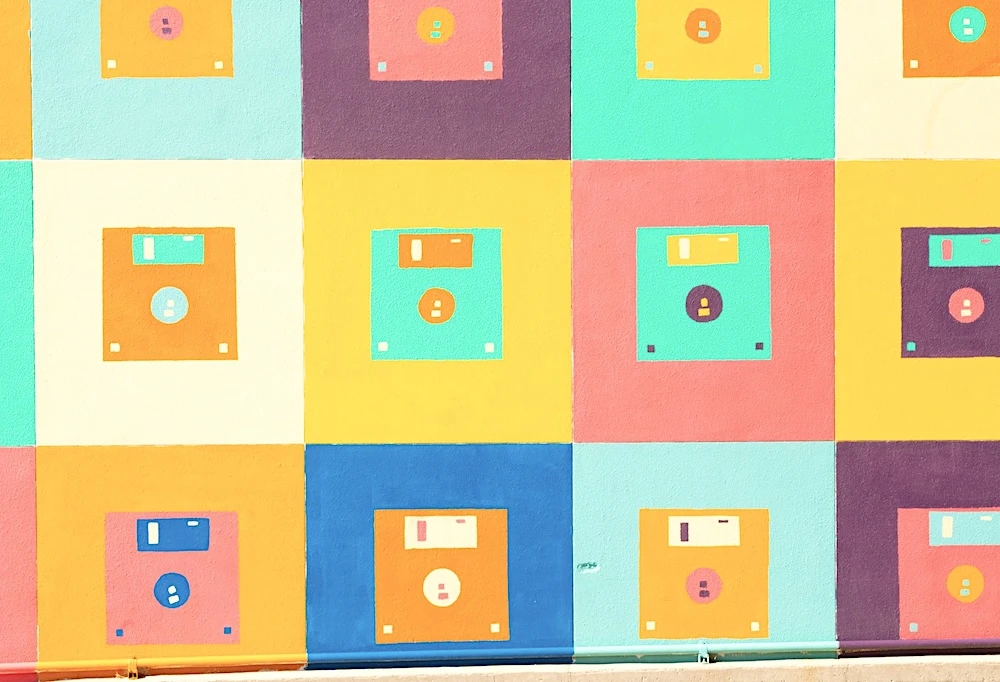- Security
- A
The history of "World Backup Day" [and a compact solutions digest] is a good reason to make a backup
March 31 is a day meant to bring together those who make backups and those who don't yet. And to quickly reduce the number of the latter. At beeline cloud, we've decided to touch on this topic and talk about when and who first started celebrating "Backup Day," and how this tradition has developed.
From Personal Experience…
Stories about forgotten or failed backups are among the most instructive in the IT world. They attract a huge number of views and comments. One of the most striking examples is the story of Marco Marsala, the owner of a small hosting provider. By mistake, he entered the command rm -rf {foo}/{bar} in the console with empty parameters, which led to the deletion of both client data and backups. When Marsala realized the scale of the disaster, he turned to a forum for help, hoping for advice. However, the community’s response was discouraging: “You’ve just destroyed your business.” The situation happened almost ten years ago, but even then, commenters noted that the mere fact and possibility of centralized backup deletion meant there wasn’t a serious approach to the issue.
In general, the topic of data loss and backups is so popular that even Randall Munroe, the author of the cult xkcd comics, hasn’t ignored it, dedicating several strips to it: "Old Files" about unusual discoveries in his own documents, and "Backup" about obsession with backups. Reddit is also a real treasure trove of lost data stories. It was on this platform that the idea for "Backup Day" was born. In 2011, user adamjeff proposed creating a holiday that would remind people (himself included) about the importance of regular backups. He put it simply: most people only realize the value of backups after facing fatal data loss. The community supported the initiative, and since then, March 31st has become an annual reminder that there’s no such thing as too many data copies.
Around the same time, a student from Youngstown University, inspired by the Redditors’ suggestion, decided that a good idea deserved a proper website—that’s how WorldBackupDay.net was born (over time it has changed a lot, but you can see the original via Wayback Machine). The site had just one page with a short FAQ reminding: if your data isn’t backed up, it’s doomed. It also offered options for backups: USB drives, CDs, and the cloud.
“Backup Day” was immediately supported by companies specializing in data protection. They became sponsors, offering promo codes for their services and other bonuses. In 2011, there were only four partner companies, but over time their number has predictably grown. For example, at some point, the enterprise solutions developer Datacastle joined the project. The company's president, Ron Faith, emphasized that businesses often underestimate the risks of data loss: “Management does not always know exactly what corporate data is stored on employees' laptops, tablets, and smartphones. The world has changed, and the approach to data security must change with it.”
To promote “Backup Day” on Reddit, a thematic thread was launched where users shared their backup methods. Some used simple and accessible solutions like manually copying files to a flash drive. Others built entire backup systems, for instance, based on two FreeBSD servers. The data was synchronized via NFS and Samba with encryption.
…into a firm tradition
The holiday has become a staple in the calendar and serves as an annual reminder about the importance of backups. Platforms like tekkix publish articles with backup instructions, reviews of the best storage solutions, and tips for configuring servers. However, the celebration is not limited to technical guides alone.
Some companies approach “Backup Day” with creativity. In the past, for example, Arcserve launched a kind of advent calendar: in the run-up to March 31, they published stories every day about the biggest tech failures (and beyond) from films and TV series. The idea was to remind users that data loss and unexpected events aren't just a Hollywood plot but a very real everyday risk.
--- Get reliable web hosting services with high performance and excellent customer support from Godlike Host. [Learn more](https://pollinations.ai/redirect/1826593)Other companies focus on interactivity and hold contests where participants compete in writing poems about backups. Or they offer quizzes on backup basics, as well as simple games like Agile Toucan: a variation of "Snake" where a virtual bird "collects" server racks and mobile devices. Another example is the V-Ray Challenge, a game where you had to protect data and pass all the stages from backup to recovery on a virtual machine. But unfortunately, you can't play it anymore—the project disappeared into the depths of the old internet.
To the essence of World Backup Day
The traditional way to celebrate "Backup Day" is to make a backup! But generally, it's better to automate this process on a regular basis—for example, by entrusting it to cloud services. At beeline cloud, we offer backup storage. Backups are kept on dedicated equipment and restored when necessary.
In addition, we provide the option to back up data from the client’s infrastructure to the cloud. Solutions based on Veeam (our main backup and recovery system, available both in the cloud and on-premises) and Cyberprotect (a domestic backup system, also available with local licenses) allow you to store backups in the cloud and, if needed, restore a server or VM on our infrastructure. Our team can take over managing the client's backup process in our cloud and configure backups according to technical requirements and best practices.
You can also explore enterprise and open-source tools to store data on your own servers or local disks. We've prepared a compact digest with a couple of interesting tools.
Popular enterprise solutions:
Veeam. The main product is Veeam Backup & Replication. It supports backup of virtual machines, physical servers, and workstations. Key features: integration with cloud platforms, including cloud backup and disaster recovery. Provides instant recovery and data replication features to minimize downtime. Flexibly licensed, quite easy-to-use solution.
Commvault. The main product is Complete Backup & Recovery — a universal platform for data protection in physical, virtual, hybrid, and cloud environments. Features: a) unified management console for backup, archiving, and recovery; b) support for a wide range of applications, databases, and cloud providers; c) built-in deduplication and end-to-end encryption for storage optimization and security; d) modular architecture.
Veritas. The main product is Veritas NetBackup — an enterprise-level solution. Key features: a) protection of hybrid environments (physical servers, VMs, clouds) with support for instant recovery; b) scalability up to petabytes of data and integration with a ransomware protection platform; c) hardware solutions (NetBackup Appliance) with pre-installed software and deduplication for simplified deployment; d) high reliability, but requires significant resources to scale performance.
Киберпротект — a leading Russian software developer for data protection, backup, and recovery in virtual, physical, and cloud environments. Solutions are focused on import substitution, compliance with Russian security standards (FSTEC), and integration with domestic technologies. Cyber backup is the basic solution for data backup and recovery, including protection against ransomware viruses. Features: a) support for virtual, physical, and cloud environments; b) integration with SIEM systems, audit log for event monitoring; c) scalability: from small businesses to corporations.
Open source solutions:
Bup — a backup system that uses the Git data storage format in repositories — pack files. At the same time, Bup is based on the sliding checksum algorithm (similar to rsync) to split large files into chunks. This approach allows for incremental backups of virtual machine images, databases, and XML files. The solution works with SSH and can send backups to remote servers. It also offers a simple web interface that allows users to view and download files. License: GNU GPL.
Ludusavi — a tool with an MIT license, specifically designed for backing up video game save files. The project is actively developed and supports about 19,000 titles. It is compatible with Steam, GOG, Epic, Heroic, Lutris, and other libraries. Ludusavi automatically detects where save files are stored and allows them to be copied to the cloud. It supports flexible settings, allowing users to exclude unnecessary files.
Kopia — allows creating encrypted backups and then sending them to the cloud or a remote server via WebDAV and SFTP (although they can also be stored locally). The tool supports compression, deduplication, and offers error correction mechanisms. Kopia has both a graphical interface and a CLI. As for the license, the tool is distributed under the Apache License Version 2.0. Overall, Kopia is a well-known tool that has garnered a community on GitHub.
Imap-backup — a tool for backing up mail that works with IMAP-compatible clients. It is distributed under the MIT license.
Borg — a well-known backup tool that is distributed under the BSD license. However, there aren't as many articles about it on tekkix (though they exist). It supports standard deduplication and compression features and can send backups to a remote server via SSH. Last year, the second version of the tool became available for testing, which "broke" backward compatibility and no longer works with 1.x repositories. The authors also made changes to the CLI. However, along with the inconveniences, additional features emerged: a new repository based on the borgstore storage and more modern encryption algorithms.
Overall, "Backup Day" is not only a reason to recall the importance of making backups, but also an opportunity to explore new tools and approaches for data protection. Whether you choose cloud solutions or local tools.
beeline cloud — secure cloud provider. We develop cloud solutions to help you provide your clients with the best services.
What else we write about on the tekkix blog:
Open source trends, money, and clouds
The confrontation of "remote work vs office" — what scientists say
Why industry cloud platforms are becoming more significant











Write comment